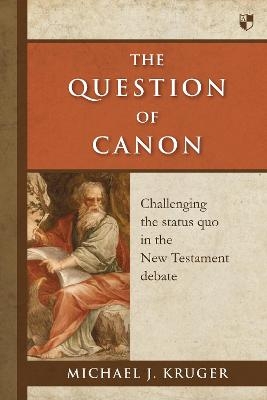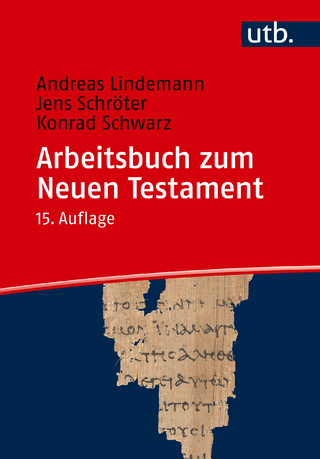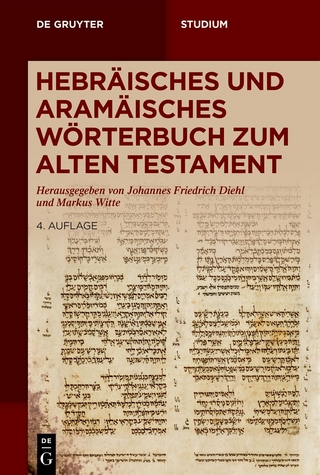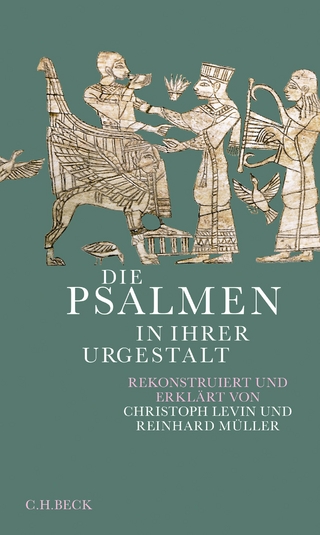
The Question of Canon
Challenging The Status Quo In The New Testament Debate
Seiten
2013
Apollos (Verlag)
978-1-78359-004-9 (ISBN)
Apollos (Verlag)
978-1-78359-004-9 (ISBN)
- Titel z.Zt. nicht lieferbar
- Versandkostenfrei innerhalb Deutschlands
- Auch auf Rechnung
- Verfügbarkeit in der Filiale vor Ort prüfen
- Artikel merken
Challenging the status quo in the New Testament debate
For many years now, the topic of the New Testament canon has been the main focus of my research and writing. It is an exciting field of study that probes into questions that have long fascinated both scholars and laymen alike, namely when and how these 27 books came to be regarded as a new scriptural deposit.
But, the story of the New Testament canon is bigger than just the "when" and the "how". It is also, and perhaps most fundamentally, about the "why". Why did Christians have a canon at all? Does the canon exist because of some later decision or action of the second- or third-century church? Or did it arise more naturally from within the early Christian faith itself? Was the canon an extrinsic phenomenon, or an intrinsic one?
These are the questions this book is designed to address. And these are not micro questions, but macro ones. They address foundational and paradigmatic issues about the way we view the canon. They force us to consider the larger framework through which we conduct our research - whether we realized we had such a framework or not.
Of course, we are not the first to ask such questions about why we have a canon. Indeed, for many scholars this question has already been settled. The dominant view today, as we shall see below, is that the New Testament is an extrinsic phenomenon; a later ecclesiastical development imposed on books originally written for another purpose. This is the framework through which much of modern scholarship operates. And it is the goal of this volume to ask whether it is a compelling one. To be sure, it is no easy task challenging the status quo in any academic field. But, we should not be afraid to ask tough questions. Likewise, the consensus position should not be afraid for them to be asked.
For many years now, the topic of the New Testament canon has been the main focus of my research and writing. It is an exciting field of study that probes into questions that have long fascinated both scholars and laymen alike, namely when and how these 27 books came to be regarded as a new scriptural deposit.
But, the story of the New Testament canon is bigger than just the "when" and the "how". It is also, and perhaps most fundamentally, about the "why". Why did Christians have a canon at all? Does the canon exist because of some later decision or action of the second- or third-century church? Or did it arise more naturally from within the early Christian faith itself? Was the canon an extrinsic phenomenon, or an intrinsic one?
These are the questions this book is designed to address. And these are not micro questions, but macro ones. They address foundational and paradigmatic issues about the way we view the canon. They force us to consider the larger framework through which we conduct our research - whether we realized we had such a framework or not.
Of course, we are not the first to ask such questions about why we have a canon. Indeed, for many scholars this question has already been settled. The dominant view today, as we shall see below, is that the New Testament is an extrinsic phenomenon; a later ecclesiastical development imposed on books originally written for another purpose. This is the framework through which much of modern scholarship operates. And it is the goal of this volume to ask whether it is a compelling one. To be sure, it is no easy task challenging the status quo in any academic field. But, we should not be afraid to ask tough questions. Likewise, the consensus position should not be afraid for them to be asked.
Michael J. Kruger (PhD, University of Edinburgh) is president and professor of New Testament at Reformed Theological Seminary in Charlotte, North Carolina. He is the author of several books, including Canon Revisited: Establishing the Origins and Authority of the New Testament Books and The Heresy of Orthodoxy (coauthored with Andreas Kostenberger). Together with Charles E. Hill he edited The Early Text of the New Testament.
| Erscheint lt. Verlag | 15.11.2013 |
|---|---|
| Verlagsort | Nottingham |
| Sprache | englisch |
| Gewicht | 422 g |
| Themenwelt | Religion / Theologie ► Christentum ► Bibelausgaben / Bibelkommentare |
| Religion / Theologie ► Christentum ► Kirchengeschichte | |
| ISBN-10 | 1-78359-004-1 / 1783590041 |
| ISBN-13 | 978-1-78359-004-9 / 9781783590049 |
| Zustand | Neuware |
| Informationen gemäß Produktsicherheitsverordnung (GPSR) | |
| Haben Sie eine Frage zum Produkt? |
Mehr entdecken
aus dem Bereich
aus dem Bereich
Buch | Softcover (2021)
De Gruyter (Verlag)
29,95 €


